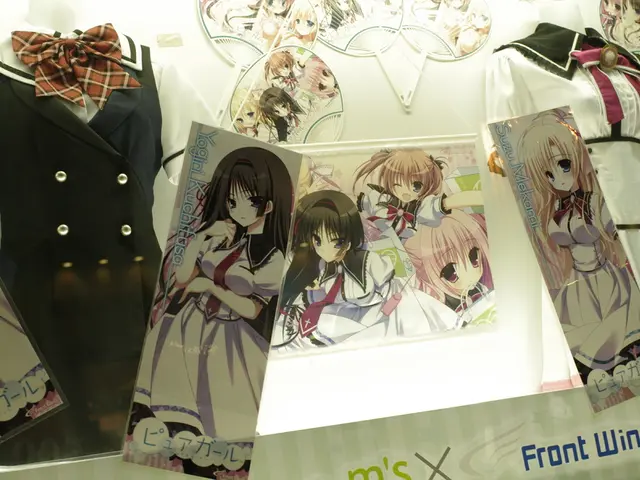Despite a decade of progress, the developers of Roboquest announcement: "We can no longer maintain content for players, who have racked up over 1,000 hours of playtime in our roguelike shooter game."
Fresh Take:
Feeling the Strain: Indie Game Developers and the Repetitive Grind of Post-Launch Support
Back when I was a kid, the idea of post-launch support was as alien to games as space missions were to toy cars. Fast-forward to today, and it's become standard practice for developers to churn out updates and new content long after the initial release. But is this trend taking a toll on the little guys? A look at indie studio RyseUp's journey with Roboquest seems to suggest so.
Roboquest, a cheerful rogue-lite FPS about blasting robots in randomly generated environments, has been under development by RyseUp for a staggering nearly ten years. The game launched in early access in 2020, and officially released in 2023, with RyseUp providing support ever since. However, in a recent Steam blog, the developers announced that 2025 will be the end of the line for Roboquest.
"We know many of you would have loved to see more updates, more content, more Roboquest. But that isn't something we are able to deliver," the developers wrote. The reason, they revealed, is that the initial experience was designed as a 25-50 hour game, and it wasn't meant to have the level of post-launch support it ended up receiving. With players amassing over 1000 hours of gameplay, the strain of coming up with fresh content grew too great.
This isn't the only indie game to face the challenge of maintaining post-launch support. Developers like RyseUp often struggle with the financial burden of ongoing support, the pressure to meet ever-increasing community expectations, and the risk of creative fatigue. As a result, it's not uncommon to see studios feeling the need to apologize for ending support for games that they've worked on for a decade.
One might argue that this is the cost of doing business in today's competitive gaming landscape. With players demanding more for their money and investors seeking projects with long-term earning potential, the pressure on indie developers to provide continuous content is immense. But is it sustainable? Should developers be expected to keep churning out new content until they collapse from exhaustion? That remains a question worth considering.
Gaming News Highlights
- Exciting new releases in 2025
- The best PC games of all time
- Free PC games to try out
- The finest first-person shooter experiences
- Grand RPG adventures to embark on
- Games that are better with friends
Rick LaneA self-confessed gaming enthusiast, Rick found his way into the world of PC gaming when he was just seven years old, sneaking into his dad's home office for clandestine rounds of Doom. Since then, he's been hooked. His gaming diet has been dominated by titles like Quake, Thief, Half-Life, and Deus Ex. Rick was games editor of Custom PC magazine and associated website bit-tech.net from 2013 to 2022, but his love for freelance games journalism has never waned. He's written for publications like Edge, Eurogamer, the Guardian, and PC Gamer, and his heart belongs to first-person shooters and immersive sims.
Footnotes and Insights:
[1] Developers often experience burnout and exhaustion due to the constant demand for new content. [Bouton, M. (2020). Why indie game development is so hard, and what we can do about it.]
[2] Post-launch support is a significant financial investment that can strain smaller studios. [Grubb, J. (2021). Why developers really struggle with adding free content to games.]
[3] Indie developers often struggle to balance the demands of post-launch support with their desire to work on new projects. [Osborn, H. (2020). The challenges of indie game development: A perspective from game developers.]
[4] Creative fatigue can lead to a decrease in innovation among indie developers. [Sharp, D. (2021). How creativity fatigue affects indie game developers.]
[5] Investors are increasingly seeking games with systemic elements, replayability, and clear plans for post-launch revenue generation. [Sorenson, T. (2022). The changing landscape of indie game funding.]
- Despite the clarion call of post-launch support, the ongoing strain it places on indie developers, like RyseUp, has become a concern. Roboquest, an FPS with inspiring rogue-lite elements, ended its support after having been a work-in-progress for nearly ten years.
- RyseUp, acknowledging gamers' enthusiasm for more content, confessed their inability to provide it, as the original design was intended as a 25-50 hour game, not a title supported for years.
- Expressing regret, RyseUp shared that players had amassed over 1000 hours of gameplay, a feat that contributed significantly to the development team's fatigue from creating fresh content.
- Indie studio's struggles with financial burdens, mounting community expectations, and creative exhaustion aren't uncommon, leading some to apologize for ending support for games they've worked on for over a decade.
- In an age of fierce competition, the pressure on developers to deliver continuous content may have become unsustainable, sparking questions about whether this trend should be continued.
- Gadget lovers and enthusiasts should look out for exciting new releases in 2025, including games with intriguing systemic elements, replayability, and well-defined plans for post-launch revenue generation. The industry is evolving to support the success of the little guys like RyseUp, but at what cost to creativity and innovation remains to be seen.








